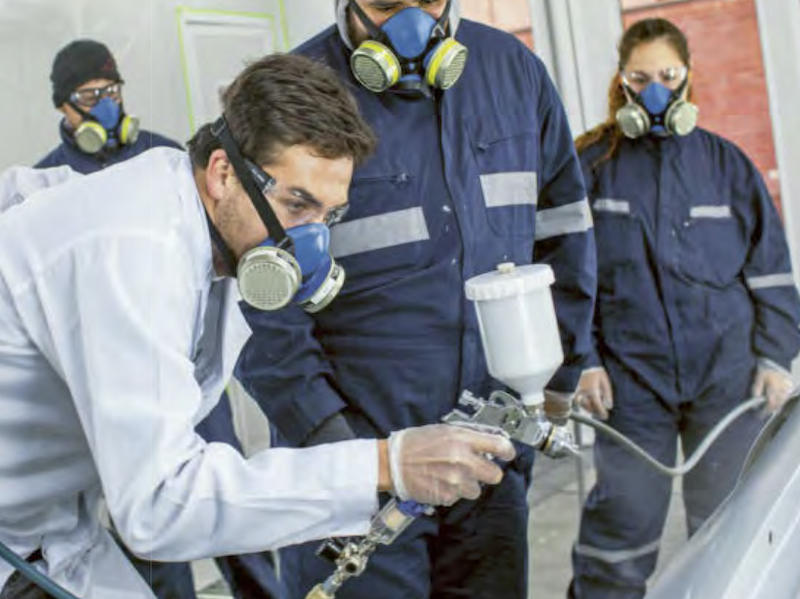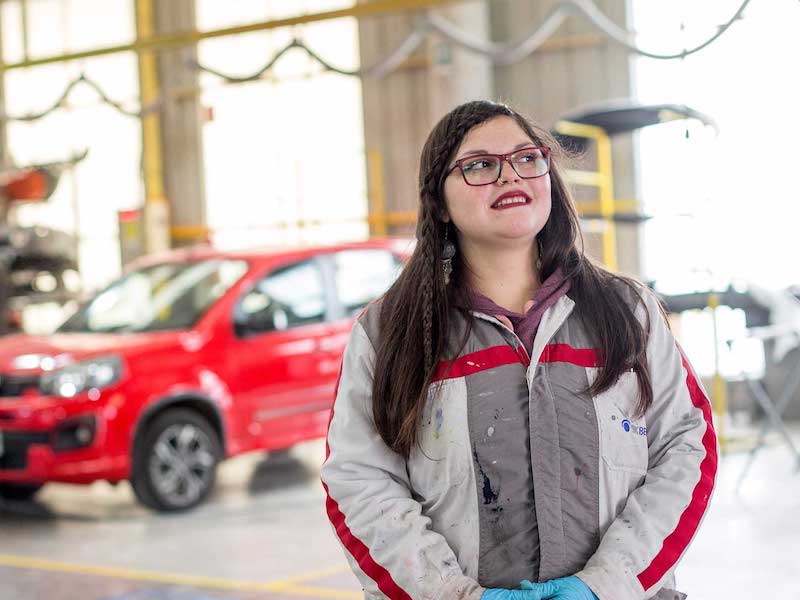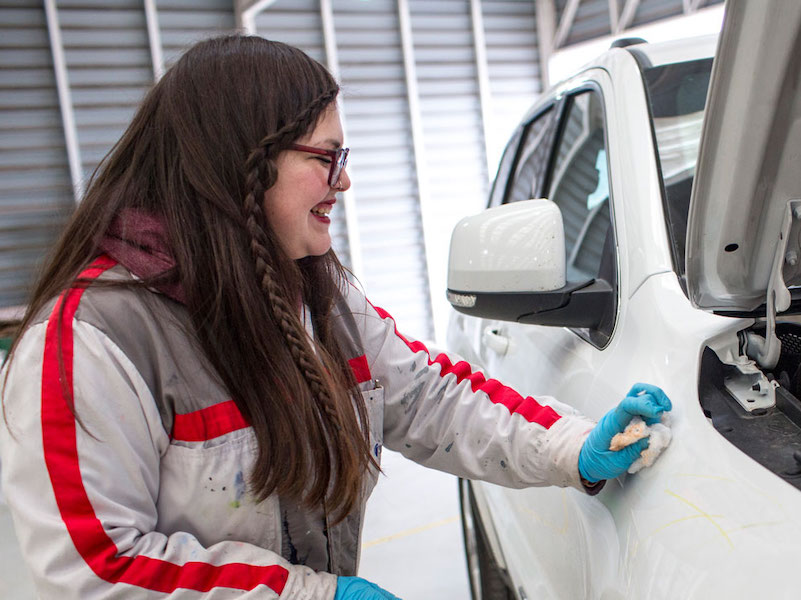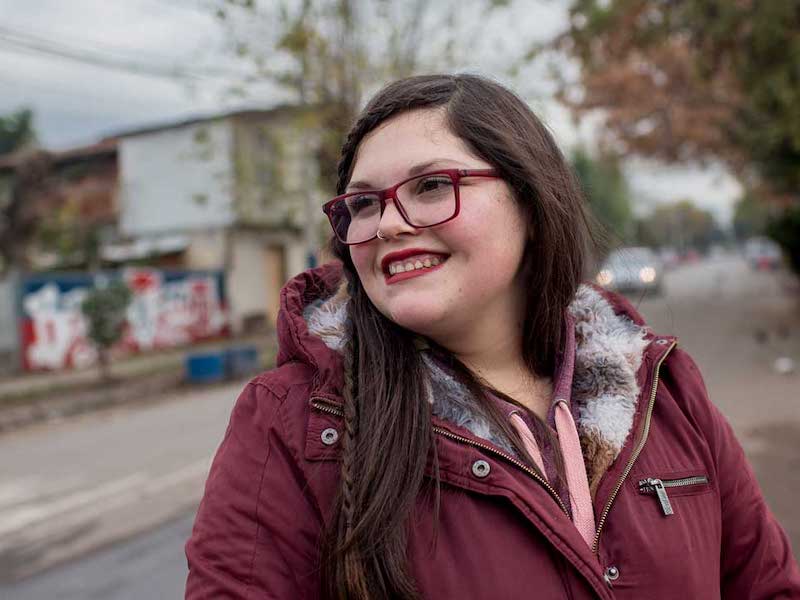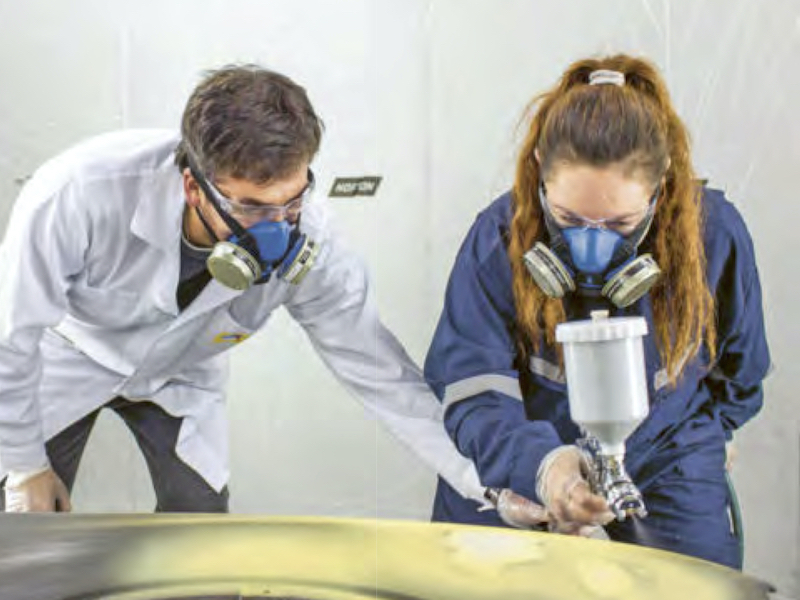At a workshop in the north of Santiago de Chile, a group of young people are filling in car panels with putty and sanding them down ready for painting.
They are attending Espacio Inclusivo, a course in car refinishing. Now in their third week, they are finally getting a chance to put into practice some of the techniques they have learned.
Espacio Inclusivo is a three-month course run by BASF with its partners SKBergé, one of Chile’s biggest car dealers, 3M, and training institutions. When the students finish, they are offered internships. In the last four years, around 150 students have graduated from the course, and many of them are now working in the sector.
A fresh start
However, the course is about more than just gaining new skills. For Katherine Jara, a recent graduate, it was a lifeline. When her father died, it tore a hole in the middle of her close-knit family. She did not leave her house for weeks. Then, browsing the Internet, she came across an advert for the course. Among nursing and secretarial courses, it was the car-painting course that caught her eye.
“I’ve always been interested in jobs that are considered to be for men. I guess it comes from helping out my dad in construction,” she says. Now Katherine has a job working for SKBergé.
The project is the brainchild of Fernando Farías, former business coordinator of BASF Chile’s car paint business, and his team.
“We found that one of the main obstacles facing the workshops that buy BASF’s paints is a lack of trained workers,” says Farías.
The number of cars in Chile has almost doubled over the last decade. Dealers sold more than 400,000 new cars in 2018, an increase of 15 percent over the previous year. That has left auxiliary industries, such as car painting, struggling to keep up. Car painting has traditionally been an artisanal business, carried out in small family workshops, with skills passed down from generation to generation. Farías and his team saw a way to combine the company’s interests with those of its partners and to help young people from vulnerable backgrounds looking for opportunities.
Skills for life
Mario Urra, one of the BASF trainers, says the course can turn around students who come from difficult backgrounds. One former student was from one of Santiago’s toughest neighborhoods. With his father in jail and his mother on drugs, he could hardly see a way out of his predicament. But he was one of the most dedicated on the course, staying behind to pick up tips and help clean up. When he did not show up for three days, Urra went to find out what was wrong. The student had grown disillusioned, but Urra convinced him to return. Now, a couple of years later, the student has a job at a garage, a girlfriend, and a car of his own, and he recently moved into an apartment outside his old neighborhood.
“This is more than a job. It is about quality of life,” says Urra.
Courtesy of BASF Automotive Solutions; visit https://automotive.basf.com/




